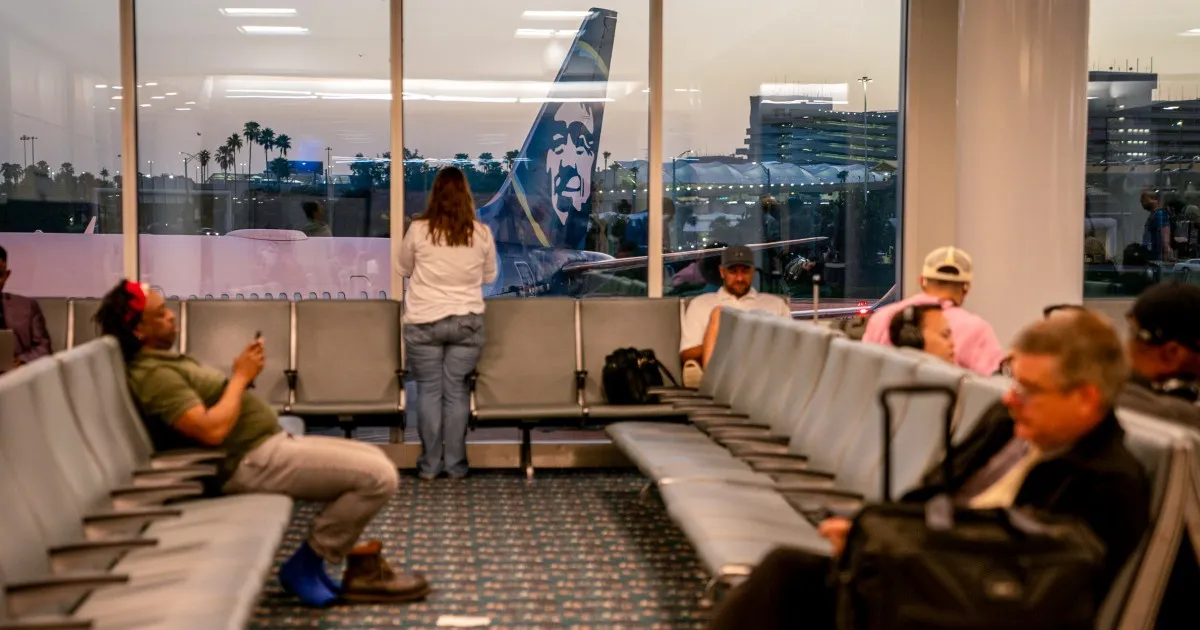
As the government shutdown continues, airports across the United States are experiencing significant operational challenges, with Orlando International Airport (MCO) in Florida facing severe delays. On Thursday evening, a ground delay was implemented for MCO, which is the busiest airport in the state. Departures from the airport were delayed by an average of 2.7 hours due to ongoing staffing issues.
The ground delay at Orlando International Airport was effective from 10 p.m. to 3 a.m. ET, as per a Federal Aviation Administration (FAA) advisory. Earlier that evening, the FAA announced that the airport was unable to accommodate landing flights due to a lack of available certified air traffic controllers at the hub. Fortunately, this situation was later resolved, with the FAA reporting an “increase in staffing” at the F11 Central Florida Tracon, where controllers manage air traffic.
A spokesperson for MCO confirmed that the ground delay stemmed from staffing shortages, resulting in a reduction of arrival rates at the airport. Passengers were advised to expect delays averaging 2.5 hours as a consequence.
Orlando International Airport is not alone in facing these challenges. Ronald Reagan Washington National Airport (DCA) in Arlington, Virginia, also reported ground delays averaging 90 minutes due to similar staffing issues. According to the FAA, these delays occurred from 1:30 p.m. Thursday until 1 a.m. Friday. This ongoing turmoil underscores the broader crisis plaguing American airports, which are grappling with staffing shortages, extensive delays, and flight cancellations as air traffic controllers and Transportation Security Administration (TSA) workers go without pay.
In addition to the issues at MCO and DCA, flights headed for Los Angeles International Airport (LAX) were temporarily halted on Sunday morning due to a staffing shortage. A ground stop was issued, preventing planes from departing for Los Angeles and causing delays averaging one hour and 40 minutes. This situation highlights the ongoing operational difficulties faced by airlines amidst the shutdown.
This week marked a significant milestone as federal employees, including air traffic controllers, received their zero-dollar paychecks for the first time, as the shutdown entered its 30th day. The financial strain on these essential workers is becoming increasingly apparent, prompting Delta Air Lines to call on Congress to reopen the government immediately. The airline emphasized that the lack of paychecks “only increases the stress” on air traffic controllers, many of whom are already working mandatory overtime to ensure the safety and security of the skies.
The ongoing crisis has exacerbated pre-existing issues within the air traffic control workforce, including chronic staffing shortages and grueling work schedules. This week, members of the National Air Traffic Controllers Association (NATCA), a prominent labor union, rallied for an end to the shutdown, distributing leaflets to raise awareness of their plight. Controllers often endure demanding schedules of six days a week with ten-hour shifts, and many have taken on second jobs to support their families and manage financial responsibilities amidst the uncertainty of missed paychecks.
As the government shutdown persists, the ramifications for air travel continue to unfold, revealing the critical importance of adequate staffing and support for those who keep our skies safe.